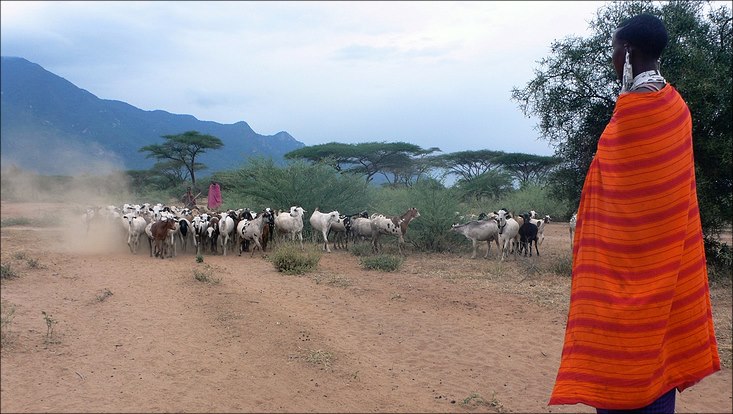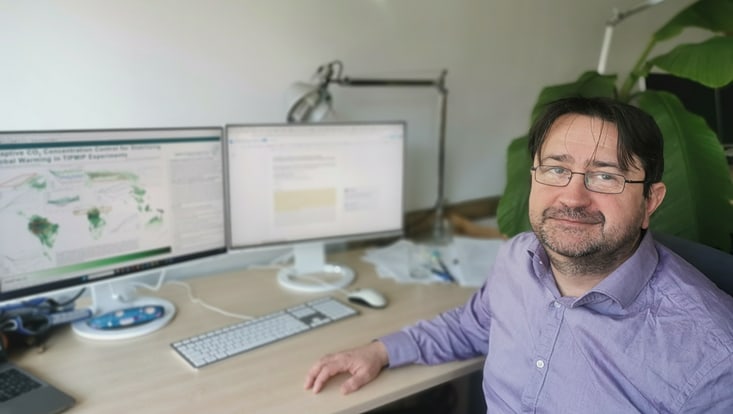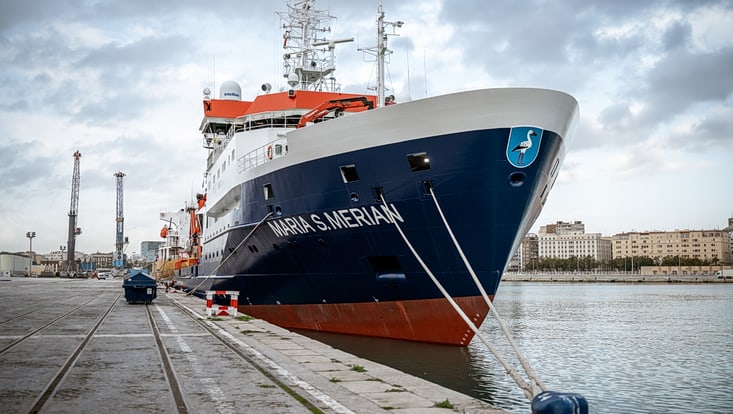Old Knowledge for a New World
24 February 2021, by Jan Petzold

Photo: Unsplash/venturini
As climate change progresses, living conditions are changing around the globe. Communities must learn to adapt. Accordingly, measures are now being developed and tested worldwide. At the same time, there is already a treasure trove of practices and strategies available, but to date it has been largely ignored.
How can less water be used on crop fields? Where is the best place for herds to graze during droughts? Herders and smallholder farmers not involved in industrial food production often know such things without following any written plan. Lessons learned are handed down from generation to generation – so-called indigenous knowledge, which includes knowing, for example, special cultivation methods and which rare plants are best adapted to specific local climates; which plants to cultivate as protection against flooding and erosion; and how to build houses on stilts or using sturdy types of wood. In addition, social concepts based on community and sharing, as well as early warning systems for climate risks, offer a wealth of insights into climate change adaptation.

This knowledge has also been recognized by the Intergovernmental Panel on Climate Change (IPCC). However, in the three years that I worked on IPCC Special Reports, starting in 2016, I realized that it had been barely taken into account so far. Were there perhaps too few studies on the topic? The IPCC’s task is to assess all current research. In order to establish whether indigenous knowledge was sufficiently considered, at Universität Hamburg’s Cluster of Excellence Climate, Climatic Change, and Society (CLICCS), I collated the global research on the issue.
Existing studies were hardly taken into account
As a rule, IPCC reports are based solely on research findings that have been independently peer-reviewed prior to publication. These are stored in databases containing thousands of articles, which I systematically sifted through. I found a total of 236 articles that analyzed climate change adaptation based on indigenous knowledge. Of these, 68 should have been taken into consideration in the relevant part of the last full IPCC assessment. However, only 21 were included, and for the most part were only assessed superficially. Clearly, the topic wasn’t adequately represented.
My study now provides the requisite data to allow research on indigenous knowledge to be extensively included in the next Assessment Report. At the same time, I can highlight where there are geographical gaps – and which topics tend to dominate. For example, indigenous knowledge in rural areas and about changes in precipitation and droughts are most frequently addressed. Cities, on the other hand, are barely investigated, despite the fact that many members of indigenous groups also live in cities.
The IPBES report on biodiversity included indigenous people
Nevertheless, there is still a dilemma: through its selection procedure alone, the IPCC excludes some of this knowledge, since as a rule it only accepts peer-reviewed, published articles. Those authors who, for financial or structural reasons, can’t reach academic journals have no way to present their findings. Furthermore, oral traditions don’t meet the IPCC criteria, even though they could be an important source of information, especially when it comes to indigenous knowledge.
But this doesn’t have to remain the case: the international Global Assessment Report on Biodiversity and Ecosystem Services (IPBES Report) adopts a different strategy, and draws not only on the conventional sciences, but also on input from indigenous peoples and traditional communities.
Jan Petzold
Dr. Jan Petzold is a geographer and is involved in a project at Universität Hamburg’s Cluster of Excellence CLICCS, where he is collating research from various disciplines.
Scientific Paper
Petzold, J., Andrews, N., Ford, J., Hedemann, C. and Postigo, J.: Indigenous knowledge on climate change adaptation: a global evidence map of academic literature. 2020 Environ. Res. Lett. 15 113007
Newspaper
This article was first published as a guest article in the Hamburger Abendblatt as part of a monthly series on climate research. Find all articles of the series here.


